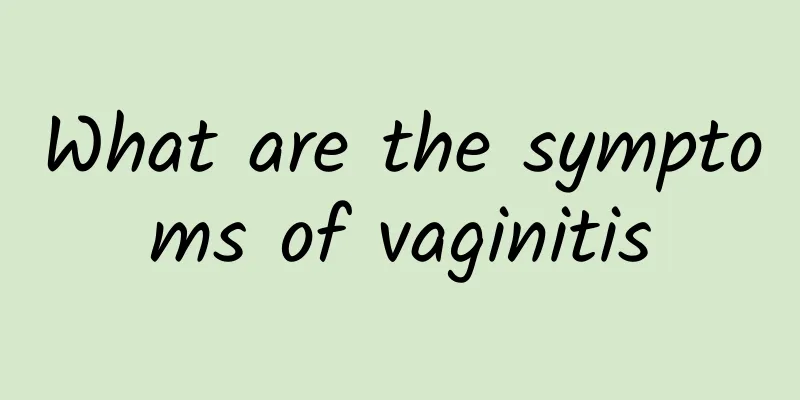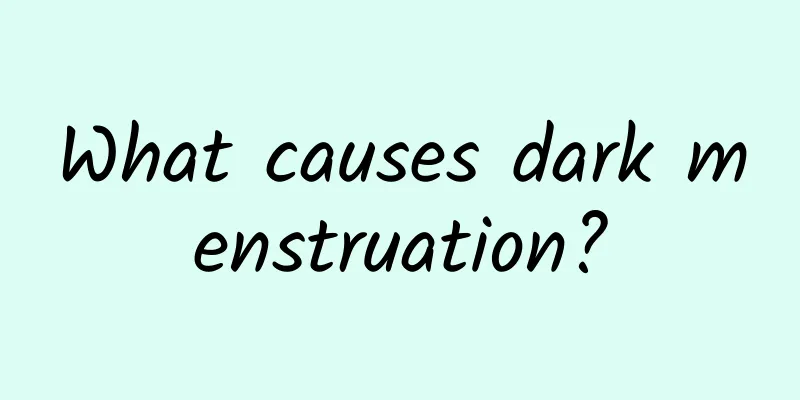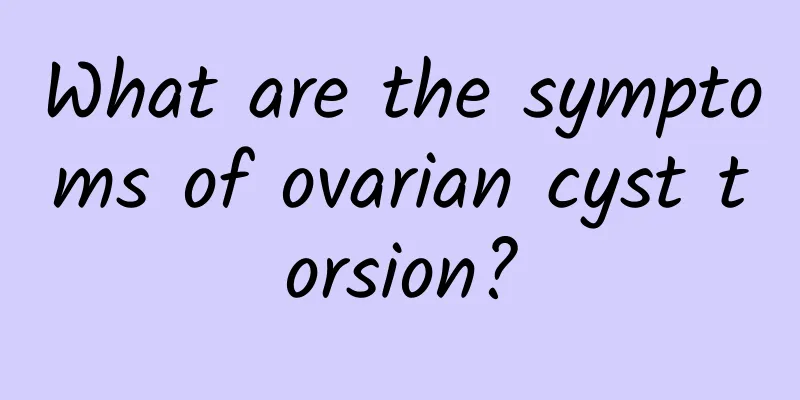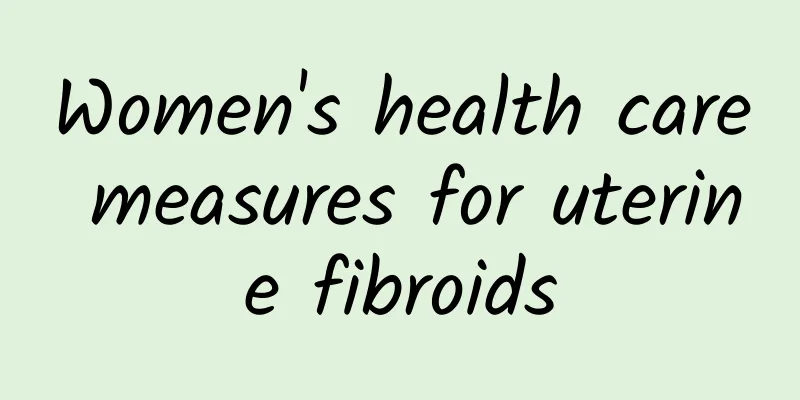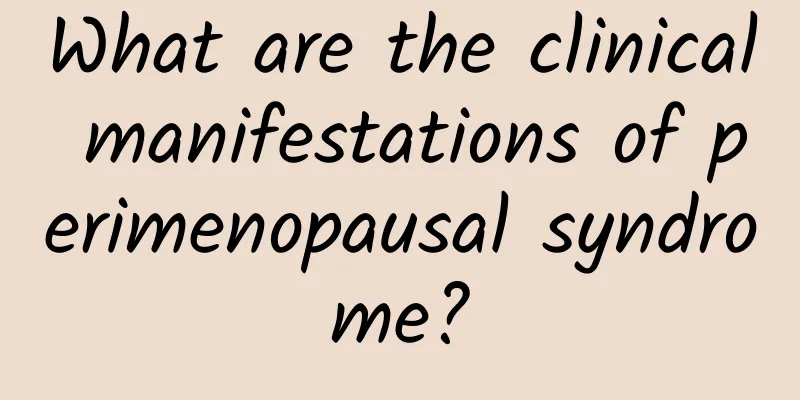Why do uterine fibroids need chemotherapy? Is it serious to need chemotherapy for uterine fibroids?
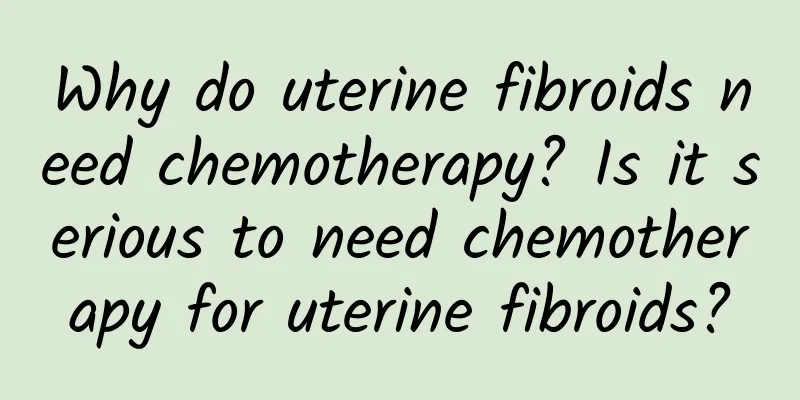
|
Uterine fibroids are a common benign tumor in women, mostly occurring in women of childbearing age. Sometimes, doctors recommend chemotherapy to treat uterine fibroids. So, why do uterine fibroids need chemotherapy? Is chemotherapy serious for uterine fibroids? This article will explore this issue in detail. 1. What is the reason for chemotherapy? Why do uterine fibroids need chemotherapy? It should be made clear that chemotherapy is not a treatment for all uterine fibroids. Generally speaking, doctors will only recommend chemotherapy as a treatment method in the following situations: 1. Uterine fibroids are too large: When the size of uterine fibroids exceeds a certain size, they may cause compression to the surrounding tissues and organs, leading to symptoms such as pain. If the fibroids cannot be effectively reduced through surgery or other methods, the doctor may recommend chemotherapy. 2. Uterine fibroids with malignant transformation: Although uterine fibroids are benign tumors, they can rarely transform into malignant tumors. If pathological examination finds that the fibroids are at risk of malignant transformation, the doctor may recommend chemotherapy. 3. Uterine fibroids cause serious symptoms: Sometimes, uterine fibroids can cause serious symptoms, such as severe pain, abnormal bleeding, etc. If these symptoms cannot be effectively relieved by other treatments, doctors may also consider chemotherapy to help patients improve symptoms. The severity of chemotherapy Is it serious to have chemotherapy for uterine fibroids? Chemotherapy is a common treatment method that mainly uses drugs to kill cells to achieve the purpose of treatment. However, chemotherapy does not cause serious side effects for all patients. In fact, most patients with uterine fibroids do not experience too severe discomfort during chemotherapy. The side effects of chemotherapy vary from person to person. Common side effects include nausea, vomiting, hair loss, fatigue, etc. These discomforts are mostly temporary and gradually ease with the end of treatment. Doctors usually adjust the type and dosage of drugs according to the patient's specific situation and condition to alleviate the discomfort. Although chemotherapy has certain side effects, its benefits far outweigh the risks for patients who need it. Chemotherapy has significant effects on controlling the growth of uterine fibroids, relieving pain, and improving symptoms. Therefore, when deciding whether to receive chemotherapy, patients should fully understand the plan given by the doctor and the possible risks and benefits. Summarize: There are several reasons why uterine fibroids require chemotherapy: they are too large, they are malignant, and they cause severe symptoms. However, chemotherapy is not serious for all patients, and most patients can relieve symptoms and improve their quality of life through appropriate drug treatment. For patients who need chemotherapy, it is very important to understand the cause and severity of chemotherapy, and to work closely with doctors to adjust the treatment plan in time to achieve the best treatment effect. The final decision-making power should be in the hands of the patient himself, who should make a wise choice based on his own situation and the doctor's advice. |
<<: What should I eat if I have uterine fibroids and am afraid of cold?
Recommend
How to treat endometriosis with drugs
The treatment of endometriosis mainly includes ho...
Are potato chips too tasty to quit? Nutritionists teach you these 3 tips to avoid getting fat
Walking into a store and seeing mountains of pota...
Several common health care methods for uterine fibroids in daily life
"What are the health care methods for uterin...
What are the common symptoms of vaginitis?
What are the common symptoms of vaginitis? I beli...
How to check chocolate cyst
Experts say: Chocolate cysts have a tendency to b...
Drinking tea can help you lose weight. Wu Mingzhu recommends this fat-burning tea...
The weather is chilly, so drinking a cup of tea c...
Prevent dementia, fight depression, prevent osteoporosis... Curcumin works wonders when taken this way!
When it comes to the benefits of eating turmeric,...
What are the causes and symptoms of ovarian cysts?
What causes ovarian cysts? What are the symptoms?...
Experience with prescriptions and medicines for the treatment of amenorrhea
Amenorrhea refers to the pathological absence of ...
How do you get a Bartholin's gland cyst?
Bartholin's gland cyst is usually caused by t...
If you have too much stomach acid, can eating alkaline foods suppress stomach acid? Alkaline foods prevent denaturation, avoid doing this
An irregular lifestyle and improper diet may caus...
What are the main symptoms of pelvic inflammatory disease?
What are the main symptoms of chronic pelvic infl...
Can moxibustion be used to treat pelvic inflammatory disease? Yes
Pelvic inflammatory disease can be treated with m...
What are the symptoms of irregular menstruation?
What are the symptoms of irregular menstruation? ...
What are the main types of vulvar leukoplakia?
What are the main types of vulvar leukoplakia? I ...
